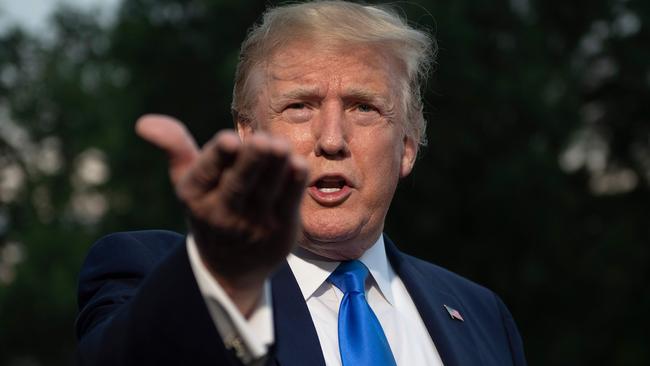
Firstly it shows how increasingly removed this White House and its president are from a coherent approach to international relations and a commitment to allies.
Secondly, it provides further evidence that Trump is relying more and more on 1970s-style protectionism to not only further US trade interests but also to achieve its broader foreign policy interests.
This is not in the interests of Australia or the global economy which has chipped away for decades to remove the very same barriers that Trump is now resurrecting, almost on a monthly basis.
Luckily sanity ultimately prevailed and the president did take the advice of some of his advisers that it would be a mistake to impose tariffs on a close ally like Australia.
But the fact that Trump’s key trade advisers Robert Lighthizer and Peter Navarro reportedly advised Trump to impose the tariffs is of great concern.
The glaring weakness of the Trump White House has always been that there are far too few grown-ups who can view policy proposals in their entirely of their impact rather than through the narrow spectrum of their own obsessions, power plays or simply to please the whims of their erratic president.
Australia’s aluminium exports to the US have jumped simply because Australia was the only country exempted from Trump’s tariffs which he imposed on other countries early last year.
But they still represent only 6 per cent of US imports — hardly a threat to the US aluminium industry, US workers or national security.
So what would the Trump administration have achieved by such a move, beyond the most marginal reduction in competition for the US aluminium industry?
It would have deeply annoyed Canberra at a time when the US needs Australia’s assistance more than ever to combat a rising China in the Pacific.
Where was Scott Morrison where he heard news that the White House had considered tariffs against Australia?
He was in Honiara, the capital of the Solomon Islands, trying to strengthen Australia’s standing with the island nation and send a message to the Pacific Islands that Australia will not cede this strategically vital region to China. This is exactly what Washington wants Morrison to be doing to help it in combating Chinese hegemony in the region.
Australia had led the world, even the US, on banning Chinese telco giants like Huawei from its next generation communication networks. Trump has personally thanked Morrison many times for this and will use Australia as an example of what Britain should do when he visits the UK today.
Then there is the simple fact that a conservative government has just been re-elected in Australia.
Why would Trump want to alienate a government that he could work far more closely with over the next few years than he could have with a Shorten Labor Government?
Luckily the State Department and the Pentagon made these sensible arguments to the White House and they ultimately won the debate.
But it should never have got to that. Good presidential advisers would have killed this silly notion stone dead before it got traction.
Perhaps it is no coincidence that this occurred in the same week that Trump announced a rolling series of tariff increases against Mexico if it does not take steps to slow the flow of asylum seekers into the US.
The use of tariffs to try to solve a non-trade issue like border crossing shows just how much Trump sees tariffs as an all-purpose weapon.
Global markets have already expressed their horror at this behaviour. The fact that Australia escaped the tariff guillotine this time is little comfort. The real concern is that this White House seriously considered such a madcap notion in the first place.
Cameron Stewart is also US Contributor for Sky News Australia




The revelation that Donald Trump and some of his advisers seriously considered imposing tariffs on Australian imports of aluminium last week is disturbing on several levels.